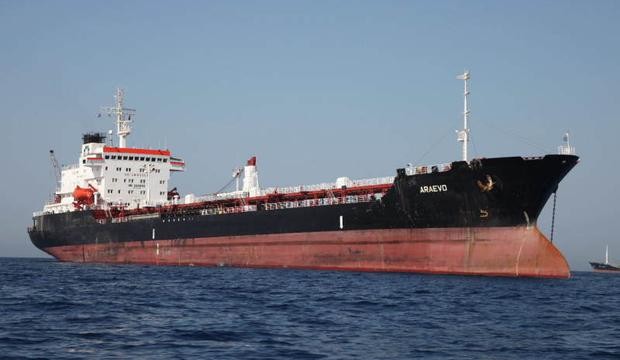Libyan National Oil Company warns unauthorized ships of exporting oil

Libya’s national oil company has warned shipowners of “unauthorised” attempts by rival factions to export crude, in further evidence of the power struggle between east and west over oil revenues.
In a letter circulated among London traders and shipbrokers, the Tripoli-based National Oil Corporation (NOC) said it had become aware of several companies trying to charter ships to load illicit cargoes of Libyan oil at the Marsa el-Hariga export terminal.
Oil purchase agreements had been signed between a handful of foreign companies and Libyan individuals claiming to act on the authority of the rival government based in the east, the NOC said.
“Shipping market participants are advised that these contracts and the individuals who signed them have no legal standing,” said Ahmed Shawki, the NOC’s general marketing manager in a letter addressed to Katharina Stanzel, managing director of oil tanker association Intertanko.
Conflict between Libyan factions since the downfall of Muammer Gaddafi in 2011 has brought the oil industry — the most important pillar for the country’s economy — to a near standstill.
Civil war has left Libya split between an authority in the eastern city of Tubruq and a government in Tripoli in the west, from which the NOC still operates.
The letter, dated February 3 and seen by the Financial Times, is the latest appeal by the NOC for help from the international community in resisting illegal oil sales and attacks on its energy facilities. Intertanko said it had not officially issued a memo to its members.
International energy companies and traders have continued to honour agreements made with the Tripoli-based NOC. They say the entity, which remains one of Libya’s few functioning institutions, is the only authority legally empowered by the UN Security Council to sell Libyan crude.
Shipowners should know that cargoes sold by these individuals will never be permitted to break the international ban on illicit trading of Libyan crude oil- Ahmed Shawki, National Oil Corporation
In a statement to the Financial Times, Mr Shawki cautioned shipowners to verify the legitimacy of charterers’ contracts or run the risk of having their ships impounded.
“Shipowners should know that cargoes sold by these individuals will never be permitted to break the international ban on illicit trading of Libyan crude oil,” he said.
Mr Shawki said the Libyan individuals involved were also behind the theft of oil from Libya in March 2014. Morning Glory, the tanker holding the stolen crude, was then seized by US Special Forces south-east of Cyprus.
Libya has forgone more than $68bn in potential oil revenues since 2013 as a result of 75 separate oilfield shutdowns and port disruptions.
Despite the growing threat of Isis militants on Libya’s energy infrastructure and economy, the NOC claims the Petroleum Facilities Guard, an armed force meant to protect the country’s energy infrastructure, has been the biggest hindrance.
The PFG is known to support the eastern government and wields influence over important oil storage and export facilities. Libya attributes at least $53bn of the lost revenues to problems caused by the PFG.
Oil production has plunged to 362,000 b/d, 20 per cent of its 2011 level.
How to submit an Op-Ed: Libyan Express accepts opinion articles on a wide range of topics. Submissions may be sent to oped@libyanexpress.com. Please include ‘Op-Ed’ in the subject line.
- Can Haftar give Russia what Assad couldn’t? - January 12, 2025
- Aguila Stakes Future on Bold Peace Initiative - January 12, 2025
- SSA seizes major drug haul, arrests Libyan suspect - January 12, 2025


